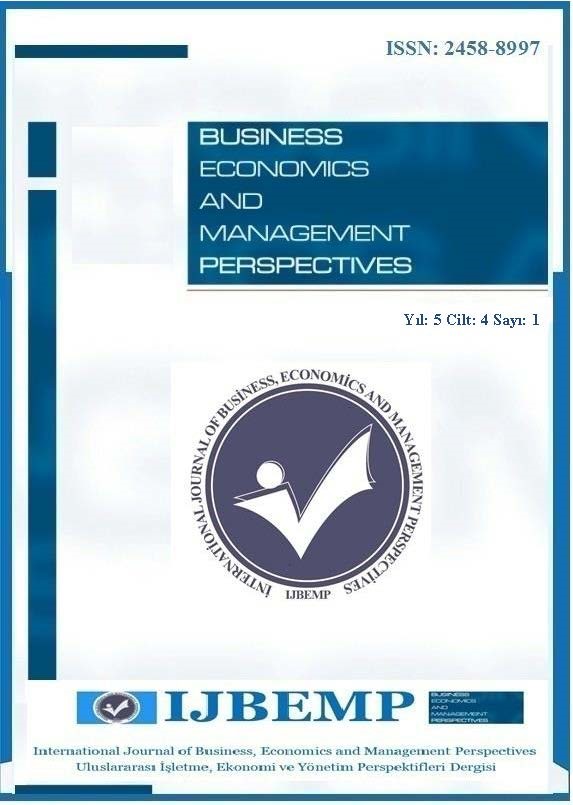Author :
Abstract
Yapılan bu çalışmada, günümüzde örgütler için önemli bir yere sahip olan bilgi paylaşımının personel güçlendirme üzerindeki etkisinin incelenmesi amaçlanmıştır. Bu doğrultuda öncelikle literatür taraması yapılarak bilgi paylaşımının açık ve örtük bilgi paylaşımı olarak iki alt boyutu, personel güçlendirmenin ise anlamlılık, yetkinlik, otonomi (kendi kaderini tayin etme) ve etki olarak dört alt boyutu incelenmiştir. Çalışmada, bilgi paylaşımının personel güçlendirme üzerindeki etkisini incelemek amacıyla hipotezler oluşturulmuş ve çalışma evreni olarak sağlık sektöründe faaliyet gösteren hemşireler seçilmiştir. Örneklem evreni olarak Kütahya Dumlupınar Üniversitesi Evliya Çelebi Eğitim ve Araştırma Hastanesinde çalışan toplam 687 hemşire seçilmiştir. Bu hastaneden rassal örnekleme yöntemi ile seçilen 225 hemşireye anket uygulanmış ve veriler elde edilmiştir. Yapılan araştırma sonucunda hemşirelerin bilgi paylaşımında bulunmalarının onların güçlendirilmesine olumlu bir katkı yaptığı bulgusuna ulaşılmıştır. Bu katkının bilgi paylaşımının açık bilgi alt boyutunda daha yüksek olduğu fakat örtük bilgi alt boyutunda ise daha düşük olduğu görülmüştür.
Keywords
Abstract
In this study, it is aimed to examine the effect of knowledge sharing, which has an important place for organizations, on empowerment. In this regard, firstly, two sub-dimensions of knowledge sharing as explicit and implicit knowledge sharing, and four sub-dimensions of empowerment as competence, autonomy (self-determination) and impact were examined by searching literature. İn the study, hypotheses were created to examine the effect of knowledge sharing on empowerment and nurses working in the health sector were selected as the study universe. 687 nurses working in Kütahya Dumlupınar University Evliya Çelebi Training and Research Hospital were selected as the sample population. A questionnaire was applied to 225 nurses selected by random sampling method from this hospital and data were obtained. As a result of the research, it was found that nurses' sharing knowledge positively contributed to their empowerment. It is found that this contribution is higher in the explicit knowledge that sub-dimension of knowledge sharing but in the implicit knowledge that sub-dimension of knowledge sharing.





